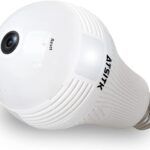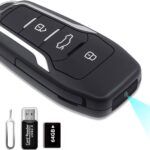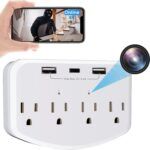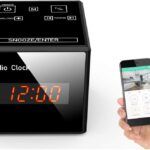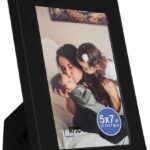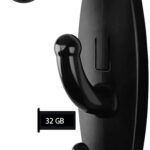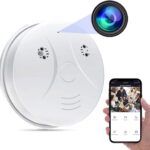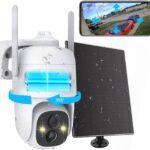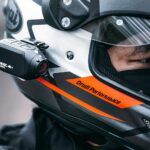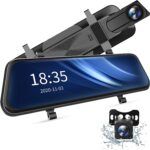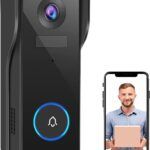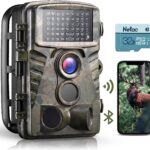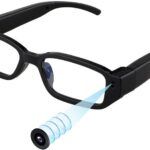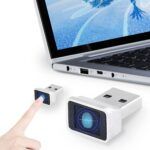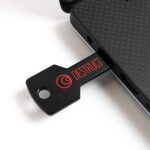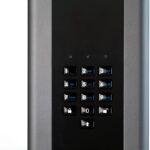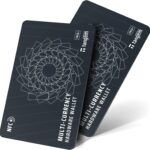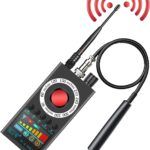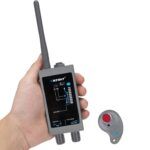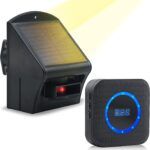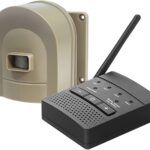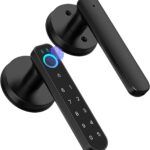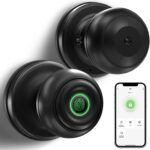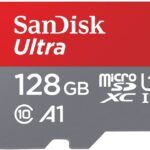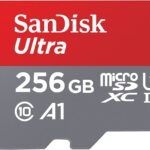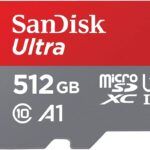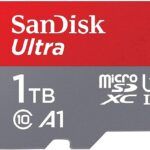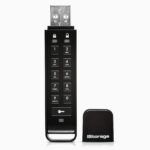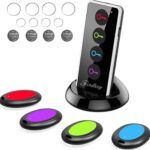- Why should I use a dash cam?
Using a dash cam can provide several benefits to drivers. One of the primary reasons for using a dash cam is for the added protection it can offer in the event of an accident or collision. Dash cams can provide video evidence of what happened during an incident, which can help resolve disputes and speed up insurance claims. Additionally, a dash cam can help capture important moments while driving, such as a scenic route or unexpected wildlife, and can also help improve driving habits by allowing you to review your own driving behavior. Overall, a dash cam can provide peace of mind and potentially save you money in the event of an accident.
- Can dash cams be used as evidence in court?
Dash cams can be used as evidence in court in case of an accident or any other incident on the road. The footage recorded by a dash cam can provide crucial evidence to support a case or to determine fault in an accident. It can help in proving the actual events of the accident and who was responsible for it. The footage can also be used to identify witnesses, license plates, and other important details that can help in the investigation of an incident. However, the admissibility of dash cam footage in court may depend on the specific laws and regulations in your country or state.
- Can police seize my dash cam footage and use it against me?
In some cases, the police may have the authority to seize dash cam footage if it is relevant to an ongoing investigation or if it can be used as evidence in a criminal case. However, whether or not the footage can be used against you depends on the circumstances of the case and the content of the footage. If the footage shows you committing a crime or violating traffic laws, it can be used as evidence against you. However, if the footage shows that you were not at fault in an accident or that you were acting lawfully, it can be used to support your defense.
It is important to note that the legality of seizing dash cam footage varies by jurisdiction, so it is important to understand the laws in your area. In any potential seizure cases the police will need to obtain a warrant, and you never should or need to volunteer your footage if you think it will prove your guilt.
- Is it easy to install a dash cam?
The installation process of a dash cam may vary depending on the model, but generally, it involves mounting the device on the windshield or dashboard and connecting it to the vehicle’s power source. Most dash cams come with a suction cup or adhesive mount that can be easily attached to the windshield or dashboard. Once mounted, the device needs to be connected to the vehicle’s power source using a USB cable or a hardwiring kit.
Some dash cams also require a memory card to be inserted to store the footage. It is important to follow the manufacturer’s instructions carefully and ensure that the device is properly installed to avoid any damage or malfunction.
- Can I plug in a dash cam to my car's cigarette lighter?
Most dash cams are designed to be powered by a car’s cigarette lighter, also known as the 12V socket or accessory socket. This is a convenient and easy way to power the dash cam without having to hardwire it to the car’s electrical system. However, it’s important to ensure that the dash cam’s power requirements do not exceed the capacity of the cigarette lighter, and to use a high-quality power cable to prevent voltage drops and other power-related issues.
Additionally, some cars may turn off the power to the cigarette lighter when the ignition is turned off, which can cause the dash cam to stop recording. In such cases, it may be necessary to hardwire the dash cam or use a battery pack.
If your vehicle has an old-fashioned cigarette lighter, you can simply use a USB car charger adapter to plug in new dashboard cameras.
- How much video footage can a dash cam record?
The amount of video footage that a dash cam can record depends on several factors, such as the capacity of the memory card, the resolution and frame rate settings, and the length of each recording loop. Most dash cams come with a loop recording feature that allows them to continuously record over old footage once the storage is full.
Depending on the model, dash cams can record anywhere from a few hours to several days of video footage. However, it is important to note that higher resolution and frame rate settings will take up more storage space and may result in shorter recording times. Therefore, it is recommended to use a high-capacity memory card and adjust the settings based on the desired recording time.
We developed a custom Video storage calculator. You can use this tool to get an estimate on how much storage space you may require per hour.
- Can a dash camera record audio?
Many dash cams have a built-in microphone that can record audio in addition to video footage. However, laws regarding audio recording can vary by state or country, so it is important to check local laws to ensure compliance. In some places, recording audio without consent can be illegal, while in others it may be permissible as long as at least one party gives consent.
Some dash cams also have the option to turn off audio recording, which can be useful in situations where audio may not be necessary or desirable. Overall, the audio recording feature can add an extra layer of detail to the footage captured by a dash cam, which can be useful in certain situations such as providing context to an accident, or dealing with law enforcement.
- Can I watch my dash cam footage on my phone?
Many dash cams come with Wi-Fi connectivity and a companion app that allows you to connect your phone to the dash cam and transfer footage wirelessly. You can also use the app to watch live footage, adjust settings, and download and share footage directly from your phone. Some dashboard cams also come with a built-in screen that allows you to watch footage on the device itself. However, it’s important to note that watching footage on your phone while driving is illegal and dangerous. It’s recommended to review the footage only after you have stopped driving, or ensure your phone is mounted on your dashboard for hands-free use.
- Can I use a dash cam at night?
Dash cams are designed to work in low light and at night. Some dash cams come with night vision capabilities, which use infrared light to illuminate the area in front of the camera. Others may have a wider aperture to allow more light to enter the lens, or use other advanced features to enhance image quality in low light conditions.
It is important to note that the quality of footage recorded at night may not be as good as during the day, as there is less light available for the camera to work with. Additionally, glare from headlights and streetlights can affect the clarity of the footage. But, dashboard cams can still provide valuable footage for documenting accidents or incidents that occur at night.
- Can I use a dash cam to monitor my car while parked?
Many dash cams have a “parking mode” feature that allows them to continue recording even when the car is turned off. This is typically accomplished by using a motion detector or a G-sensor that can detect when the car is hit or moved while parked. Some dash cameras also have a built-in battery or capacitor that can power the camera for a short period of time while the car is turned off.
Using a dash cam to monitor your car while parked can be helpful in case of hit-and-runs or vandalism, and can provide valuable evidence to the police or your insurance company.
- Can I use a dash cam on a motorcycle?
There are dash cams specifically designed for motorcycles that can withstand the vibration and harsh conditions of being mounted on a bike. Motorcycle dash cams are similar to regular dash cams but may have additional features like waterproofing, shock resistance, and a wider viewing angle to capture more of the surroundings. They can be mounted on the handlebars, fairings, or helmets and are a useful tool for capturing evidence in case of accidents or incidents on the road.
- Can I use a dash cam on a truck or RV?
Dash cams can be used on trucks or RVs, and they are especially popular among truck drivers for safety and insurance purposes. Truck drivers often face challenging driving conditions, such as long hours on the road and the potential for accidents, so having a dashboard camera can provide valuable evidence in the event of an incident. Dash cams can also help truckers monitor their cargo and ensure that it is secure during transport. Similarly, RV drivers can benefit from using these cameras to capture their adventures on the road and to provide evidence in the event of accidents or incidents.
- Can I get a discount on my car insurance if I use a dash cam?
It’s possible to get a discount on your car insurance if you use a dash cam. Some insurance companies offer discounts to drivers who install a dash cam in their vehicles because the footage can be used as evidence in an accident claim. Insurance companies may also view footage as a way to encourage safer driving habits and reduce the number of accidents on the road. It’s important to check with your insurance company to see if they offer discounts for dash cams and what their specific requirements are.
- Do dash cams record the speed of the vehicle?
Many dash cams come with a built-in GPS system that records the speed and location of the vehicle along with the video footage. This information can be useful in case of accidents or traffic violations, as it can provide concrete evidence of what happened. It can also serve as a security feature in case your vehicle gets stolen. Some dash cams may not have GPS capabilities, so it’s important to check the specifications before purchasing a dash cam if this feature is important to you.
Dash cams are small cameras typically mounted on the dashboard or windshield of a car and can capture footage of the road ahead, as well as the interior of the vehicle. Dash cams can be especially useful during a dispute over who is at fault in an accident, or when you need to provide evidence to an insurance company or law enforcement.
Showing all 14 products:

Amgur Rear View Mirror Camera (Front & Back)
$167.77
Casoda WiFi License Plate Backup Camera
$48.99
Cooau WiFi Mini Dash Cam Recorder
$89.99
Ehomful Mini Cop Spy Camera
$29.99
Foxpark Solar Wireless Vehicle Backup Camera
$179.99
Garmin Mini Dash Cam
$129.99
GLK License Plate Backup Camera
$35.99
iZeeker Dashboard Camera
$39.99
Kingslim Dual Front & Back WiFi Dash Cam
$109.99
MHCABSR WiFi Vehicle Parking Camera
$92.99
Pelsee P12 Mirror Dual Dash Cam
$129.99
Vvcar 4K Mirror Dash Cam (3 Channels)
$179.99
Wolfbox Mirror Dash Cam (Front & Back Dual Cameras)
$159.99
Wolfbox WiFi Dash Camera (Front & Rear)
$199.99

Dash cams have become increasingly popular in recent years, with more and more drivers using them to capture footage of their journeys on the road. A dash cam is a small camera that is mounted on the dashboard of a vehicle, and it records video and audio of the road ahead. These devices are designed to provide a record of any incidents that occur on the road, such as accidents, road rage, or other dangerous driving behavior. They can be a valuable tool for drivers who want to protect themselves in case of an accident or dispute with another driver, as well as for law enforcement officials who use them to investigate accidents or other incidents on the road.
There are many different types of dash cams available on the market, with a wide range of features and capabilities. Some are designed to record high-quality video footage in a variety of lighting conditions, while others are more basic and may only record a limited amount of footage. Some dash cams also include additional features, such as GPS tracking or parking mode, which can be useful for drivers who want to keep track of their vehicle’s location or monitor it while parked. With so many options to choose from, it’s important to carefully consider your needs and budget when selecting a dash cam for your vehicle.
Are dashboard cameras legal?
In most cases using dash cams is perfectly legal. Most states in the U.S. allow using dashboard cameras, in fact many police departments will even encourage their use.
But, there are some laws, rules and regulations you must be aware of. First and most common caveat relates to audio recording.
- In some states it is not legal to record audio altogether – this is typically due to strict wiretapping laws.
- In some states you can legally record audio but only if you are part of the conversation.
- In others, you may record audio but only if all or at least one party is aware they’re being recorded.
There are very few states or countries where you can record conversations without any restrictions.
Furthermore, there are states where mounting a screen in view of the driver is not allowed (typically exceptions are made for GPS navigation and such). If your vehicle is registered in one of these places, make sure you purchase a dash cam without a visible screen.
For example, in New York you are legally permitted to record conversations only if at least one participant is aware that they’re being recorded. If someone else is driving your vehicle make sure they are aware that all conversations are being recorded to avoid any legal issues.
Another potential legal issue pertaining to New York state is dash cam placement. You are not allowed to place the dash camera in a way that obstructs driver’s view of the road.
It’s always important to read up on your local laws and make sure every aspect and feature of your dash cam is legal to use.
How to buy a good dash cam
When purchasing a dash cam, there are several key features to consider. One of the most important factors is video quality. Look for a camera with at least 1080p resolution and a high-quality lens to ensure clear footage. Some dash cams also offer advanced features like 4K resolution and HDR (High Dynamic Range) technology, which can provide even better video quality.
Another important consideration is the camera’s field of view. A wider field of view means that the camera can capture more of what’s happening on the road. Look for a camera with a field of view of at least 120 degrees, although some models offer up to 180 degrees.
Other features to consider include night vision capabilities, parking mode, GPS tracking, and Wi-Fi connectivity. Night vision is important if you frequently drive in low-light conditions, while parking mode allows the camera to continue recording even when the car is parked. GPS tracking can provide useful data on your driving habits, and Wi-Fi connectivity makes it easy to transfer footage to your smartphone or computer.
Finally, make sure to consider the size and design of the dash cam. A compact and discreet camera is generally preferable, as it will be less obtrusive and less likely to distract you while driving.
Dash Cam FAQs
Dashboard cams have become increasingly popular due to the many benefits they offer. One of the biggest benefits of having them is the added layer of protection it provides. It captures footage of incidents on the road, which can be used to prove liability in case of an accident or help to identify reckless drivers. Furthermore, some insurance companies offer discounts to drivers who have installed dash cams, which can help to reduce insurance premiums.
Dash cam is an essential device for any driver who wants to ensure their safety on the road and have evidence to support their claim in case of an accident. They have also become very affordable, making it easy for anyone to purchase one.


